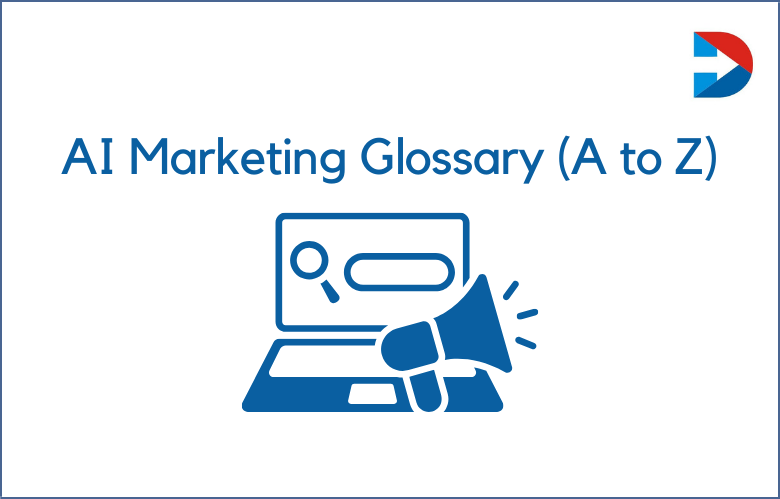Marketing is an essential aspect of any business. It helps attract potential customers and increase revenue. However, marketing covers many activities, including advertising and Publicity.
Both play a crucial role in a company’s marketing mix. Unfortunately, most times, people tend to confuse the two terms. We will discuss the differences between advertising and Publicity and how each can benefit your business.
Advertising and Publicity are distinct elements of marketing. Advertising is a paid-for promotion of products or services delivered through traditional media such as televisions, radios, newspapers, magazines, or online media such as social media platforms and Google.
Its primary goal is to reach a broad audience and persuade them to buy the product or service. With advertising, companies have complete control of their messaging and can tailor it to fit their target audience.
What is Advertising?
Advertising is a paid promotional activity whereby a business seeks to persuade a specific audience to take a particular action, such as purchasing a product or service.
Advertising usually involves mediums like print, broadcast, digital media, billboards, or promotional items. It can use images, text, video, or audio to be informative or persuasive.
The purpose of advertising may vary, but most often, it aims to inform, persuade, or remind target audiences about the brand, specific product, or service. It’s also one of the most predictable marketing methods due to its controlled and measurable nature.
What is Publicity?
Publicity, on the other hand, is all about getting your brand or message out to the public through media coverage. Hype is earned, and you can’t simply pay for it.
It’s based on a newsworthy event, thought leadership, or sharing a unique angle or perspective. It can be either positive or negative but relies heavily on the media’s decision of whether or not it’s worth covering.
Publicity can provide unique opportunities because media coverage can help establish your brand as a trusted authority in your field. It can also help generate buzz around your brand, driving traffic and sales.
The Distinction Between Advertising and Publicity.
In today’s marketing era, it can be challenging to understand the different terminologies like public relations, advertising, and Publicity. These terms may seem similar, but they hold specific meanings.
For starters, Advertising and Publicity are marketing techniques organizations use to reach their target audience. However, a marked distinction between these two methods must be addressed.
On the other hand, Publicity is non-paid media coverage or promotion of a product or service. It is earned through press releases, news stories, interviews, and other PR tactics.
Publicity aims to gain media attention and establish credibility for the product or service, raising brand awareness and reputation. Unlike advertising, companies cannot control the messaging regarding Publicity.
Understanding the Differences Between Advertising and Publicity.
When it comes to marketing, there are several elements that businesses can use to reach their target audience. Two of the most popular strategies are advertising and Publicity.
Both methods can be valuable for raising brand awareness, promoting products or services, and engendering customer loyalty. However, their approaches are distinct and require unique techniques to be successful.
In this article, we’ll delve into the differences between advertising and Publicity to help business owners decide which option would be best for their goals. So, let’s get started.
Advertising generally offers a quicker return on investment, with instant results. Companies choose the platform where they want to advertise, set a budget, and then track the results.
Publicity, on the other hand, is more unpredictable. Companies can get media coverage on unrelated or unfavorable topics to their brand. However, a publicity campaign that gets traction can lead to a significant return on investment, as it enhances brand reach and credibility.
Differences Between Advertising and Publicity.
One of the significant differences between advertising and Publicity is their delivery method.
Advertising is usually initiated and controlled by the advertiser; it’s typically designed, scheduled, and placed in specific media.
In contrast, public relations campaigns typically rely on earned media placements. It is up to the media outlet to decide whether or not to include your story in their newsfeed.
Another difference between the two strategies is the associated costs, control, and reliability.
Advertising enables businesses to control their messaging, target audience, and frequency of exposure, but it can be costly.
On the other hand, public relations is relatively inexpensive since businesses can’t guarantee coverage from third-party sources.
The Fine Line: Distinguishing Between Advertising and Publicity.
In the world of marketing and business, two terms that are commonly used interchangeably are advertising and Publicity.
Although both terms are used to create brand awareness, there is a difference between advertising and Publicity. To stand out in the competitive market, business owners, entrepreneurs, and marketers must understand the difference between the two.
Tries to distinguish between advertising and Publicity to help you make informed marketing decisions.
Publicity is often associated with the phrase “free advertising.” While it is not 100% free, as it requires PR resources and efforts, it can be cost-effective for reaching a broader audience.
Publicity is more credible than advertising, as it entails a third-party perspective. As such, when potential customers encounter a product or service through Publicity, they are more likely to trust the brand than with advertising.
When to Use Advertising and Publicity.
Both advertising and Publicity have their time and place in a marketing strategy. Advertising is best suited for product launches, short-term sales promotions, or announcements of company updates. It is also useful when a business wants to create brand awareness for a new product or service.
One last difference between advertising and Publicity is their target audience. Advertising mainly targets the customer or end-user, solely focusing on persuading them to buy the product or service.
Publicity, however, targets a broader audience but focuses more on establishing the company’s reputation and enhancing brand awareness.
Advantages and Disadvantages of Advertising.
Advertising has several advantages over Publicity, such as:
Control:
You can decide what to say, how, and to whom.
Repetition:
You can create multiple ads and show them multiple times to reinforce the message.
Flexibility:
You can choose the medium that best suits your audience and budget.
Targeting:
You can use data and analytics to target the audience that is most likely to convert.
However, Advertising also has Some Disadvantages, Such as:
Cost:
You need to pay for every ad, which can be prohibitive for small businesses.
Skepticism:
Many people have become immune to ads or even resentful of them, especially if they are intrusive or misleading.
Limitations:
You cannot say anything you want in an ad, as some laws and regulations govern advertising content.
Advantages and Disadvantages of Publicity.
Publicity also has its advantages and disadvantages, such as:
Credibility:
Publicity is often seen as more trustworthy and objective than advertising, as it comes from third-party sources.
Reach:
Publicity can have a wider reach and a longer-lasting impact than advertising, as others can share and comment on it.
Cost:
Publicity is free, except for the time and effort you put into creating and maintaining relationships with journalists and influencers.
However, Publicity also has Some Disadvantages, Such as:
Unpredictability:
You cannot control what others say or write about you, and negative Publicity can damage your brand and reputation.
Time-consuming:
You must invest time and resources in building and nurturing media relationships, pitching stories, and monitoring coverage.
Competition:
You are not the only one seeking media coverage; many factors influence who gets covered and how.
Conclusion:
In conclusion, advertising and Publicity have unique characteristics that allow a business to reap significant benefits.
Advertising is more controllable, predictable, and targeted toward end-users, with quick results, while Publicity is less predictable, more credible, and cost-effective in establishing a brand’s reputation.
Therefore, depending on your marketing goals, choosing the method that best suits your business needs or opting to use both is essential. Remember to use each technique with a clear strategy to ensure a successful outcome.




